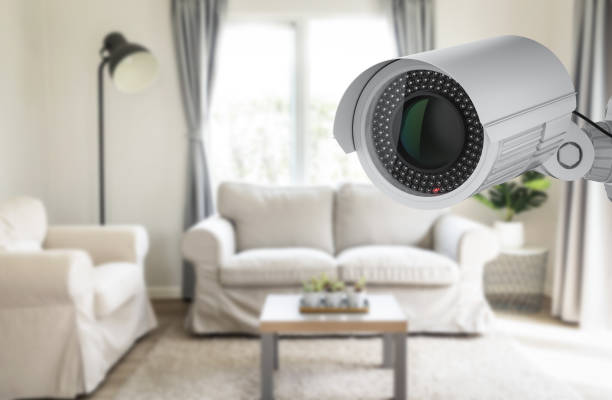Understanding CCTV Cameras: Benefits, Types, and Installation Tips

CCTV cameras, or closed-circuit television cameras, have become essential tools for enhancing security in both residential and commercial settings. They provide a reliable way to monitor and deter criminal activity, ensuring peace of mind for property owners.
Benefits of CCTV Cameras
-
Crime Deterrence: The mere presence of CCTV cameras can discourage potential criminals from targeting a property. Many studies have shown that areas with visible surveillance tend to experience lower crime rates.
-
Evidence Collection: In the unfortunate event of a crime, CCTV footage can serve as critical evidence. This can aid law enforcement in investigations and can be used in legal proceedings.
-
Remote Monitoring: Modern CCTV systems often allow for remote access, enabling users to view live feeds from their smartphones or computers. This feature is particularly beneficial for business owners who want to keep an eye on their premises when they are away.
-
Insurance Benefits: Having a CCTV system in place can sometimes lead to lower insurance premiums, as it reduces the risk of theft and vandalism.
-
Improved Safety: In addition to crime prevention, CCTV cameras can monitor hazardous areas and help ensure employee safety, making them valuable in workplaces.
Types of CCTV Cameras
-
Dome Cameras: These are commonly used in indoor settings. Their dome shape makes it difficult for people to see which direction the camera is facing, providing an element of stealth.
-
Bullet Cameras: Recognizable by their cylindrical shape, bullet cameras are ideal for outdoor use. They often come with built-in infrared capabilities for night vision.
-
PTZ Cameras: Pan-tilt-zoom (PTZ) cameras can be remotely controlled to move, tilt, and zoom in on specific areas, making them suitable for monitoring large spaces.
-
Wireless Cameras: These cameras transmit data wirelessly, making installation easier and more flexible. They are perfect for locations where running cables is difficult.
-
IP Cameras: Internet Protocol (IP) cameras connect to the internet, allowing for high-resolution video and advanced features such as motion detection and remote access.
Installation Tips
-
Assess Security Needs: Before purchasing cameras, conduct a security assessment to identify vulnerable areas. Consider factors such as entry points, blind spots, and high-traffic areas.
-
Choose the Right Location: Placement is crucial for effective surveillance. Install cameras at key points like entrances, driveways, and common areas. Ensure they are positioned to avoid obstructions and glare.
-
Consider Lighting Conditions: If installing outdoor cameras, consider the lighting in the area. Night vision capabilities can enhance security in low-light conditions.
-
Use Appropriate Mounting Equipment: Ensure cameras are securely mounted to prevent tampering. Use weatherproof housing for outdoor cameras to protect against the elements.
-
Test the System: After installation, test the system to ensure all cameras are functioning correctly and that the coverage is adequate. Adjust angles as needed for optimal visibility.
-
Maintain Your System: Regularly check the cameras for dirt, obstructions, or technical issues. Keeping the system maintained ensures it operates effectively when needed.
Conclusion
CCTV cameras are invaluable tools for enhancing security, offering benefits that extend beyond crime prevention. By understanding the different types available and following installation best practices, you can create a comprehensive surveillance system tailored to your specific needs. Whether for home security or business protection, investing in CCTV technology is a proactive step toward ensuring safety and peace of mind.




